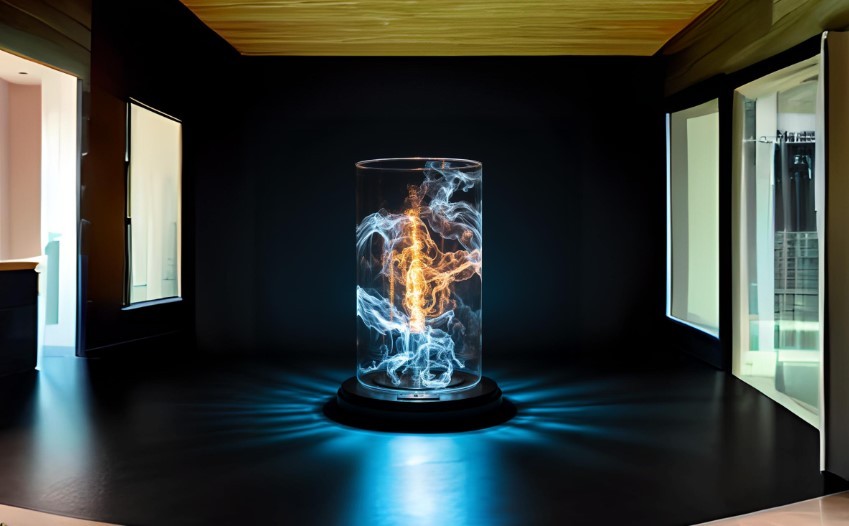The Power of AI in Advancing Nuclear Fusion: Revolutionizing the Path to Clean Energy

The pursuit of practical nuclear fusion has been a monumental endeavor that has spanned decades. However, with recent advancements in artificial intelligence (AI), there is growing optimism regarding the accelerated progress we can achieve in this field. By harnessing the capabilities of AI, we have the potential to overcome long-standing challenges and revolutionize our understanding of fusion processes. The Israeli ecosystem lends itself very well at enabling the commercialization of fusion by working with the growing fusion industry.
The Challenges of Fusion:
The complexities involved in controlling the extreme temperatures and pressures required for fusion reactions have presented formidable obstacles to scientists and engineers. Confining and stabilizing plasma, critical to maintaining fusion reactions, has proven particularly challenging. Despite the difficulties, the emergence of AI technology offers a new lens through which we can tackle these obstacles.
AI as an Accelerator:
AI, with its ability to process vast amounts of data and extract meaningful insights, has the potential to significantly expedite progress in nuclear fusion research. By leveraging AI techniques, we can simulate and optimize fusion reactions with unprecedented accuracy and efficiency. This enables researchers to explore a multitude of scenarios and parameters, revolutionizing our approach to fusion experimentation.
Simulations and Predictive Modeling:
Traditionally, fusion simulations have relied on computationally intensive models that require substantial time and computational resources. However, by incorporating AI algorithms, we can dramatically reduce the time needed for simulations. AI models trained on comprehensive fusion datasets can generate highly accurate simulations, providing researchers with valuable insights and predictions. This expedites the process of designing and optimizing fusion reactors.
Enhancing Reactor Design:
AI's impact extends beyond simulations to reactor design optimization. By employing AI algorithms, scientists can efficiently explore the vast design space and identify the most promising configurations. AI-driven optimization, combined with physical principles, enables the development of innovative and efficient reactor designs that are more resilient and cost-effective. This not only speeds up progress but also contributes to the feasibility of fusion power.
Iterative Learning and Feedback Loops:
AI's learning capabilities and iterative improvement processes can be invaluable in fusion research. By establishing feedback loops, where AI algorithms continuously refine fusion models based on new data, researchers can enhance the accuracy and efficiency of simulations and experiments. This iterative approach significantly accelerates the fusion research process, paving the way for breakthroughs in clean and abundant energy generation.
Unveiling New Insights:
The integration of AI into nuclear fusion research offers more than just accelerated progress. AI algorithms have the potential to uncover hidden patterns and correlations within fusion data, providing novel insights that might have remained elusive to human researchers. By combining the analytical power of AI with human expertise, we can revolutionize our understanding of fusion dynamics and uncover new avenues for optimization.
The convergence of AI and nuclear fusion holds tremendous promise for accelerating our progress toward achieving sustainable fusion power. By harnessing AI's computational power, we can overcome longstanding obstacles and revolutionize our understanding of fusion processes. AI enables us to simulate and optimize fusion reactions, enhance reactor design, and establish iterative feedback loops that propel us toward unlocking the potential of clean and abundant energy. Continued investment in research and development is essential to fully harness the power of AI in advancing nuclear fusion, ensuring a sustainable and prosperous future for generations to come.

AI offers several direct examples of how it can enhance the fusion journey:
Enhanced Data Analysis: AI algorithms can analyze massive amounts of experimental and theoretical fusion data more efficiently than traditional methods. By extracting patterns and correlations from this data, AI can identify key insights that can guide researchers in improving reactor design, optimizing parameters, and enhancing fusion processes.
Accelerated Simulations: Fusion simulations traditionally require significant computational resources and time. However, AI algorithms can significantly speed up this process. By leveraging machine learning techniques, AI can generate fast and accurate simulations, allowing researchers to explore various fusion scenarios rapidly. This acceleration enables quicker validation of hypotheses and more efficient testing of experimental setups.
Optimization of Reactor Design: AI algorithms can optimize reactor design by exploring a vast design space and identifying optimal configurations. By combining physical principles with AI-driven optimization algorithms, researchers can find reactor designs that are more efficient, cost-effective, and capable of achieving higher fusion performance. This accelerates the process of developing practical fusion reactors.
Error Detection and Fault Prediction: AI algorithms can analyze sensor data and detect potential errors or anomalies in fusion systems. By continuously monitoring and analyzing sensor readings, AI can predict and mitigate potential faults before they lead to disruptions or damage. This proactive approach improves the safety and reliability of fusion experiments and reactors.
Materials Discovery: AI can contribute to the search for new materials that can withstand the extreme conditions of fusion reactions. By leveraging AI algorithms such as generative models and reinforcement learning, researchers can explore a vast range of materials and predict their properties. This approach helps identify materials with superior thermal and mechanical properties, leading to more robust fusion reactor components.
Optimization of Fusion Parameters: AI algorithms can optimize the parameters governing fusion reactions to maximize energy output and reactor performance. By combining AI with control theory, researchers can continuously adjust and fine-tune the plasma conditions, magnetic fields, and other variables to optimize fusion reactions. This iterative optimization process helps researchers identify optimal operating regimes and accelerates progress towards sustainable fusion power.
Knowledge Transfer and Collaboration: AI can facilitate knowledge sharing and collaboration among fusion researchers worldwide. By developing AI-powered platforms and databases, researchers can share data, models, and insights, fostering collaboration and accelerating collective progress. AI can assist in identifying and connecting relevant research findings and enable interdisciplinary collaboration, leading to breakthroughs that might not be possible in isolated research efforts.
These direct examples illustrate the transformative potential of AI in enhancing various aspects of the fusion journey. By leveraging AI's computational power, pattern recognition capabilities, and optimization algorithms, we can accelerate the development of practical fusion power and pave the way for a sustainable energy future.
By Morielle I. Lotan. Morielle is the head of strategy of nT-tao and founder of Mile Advisory.
